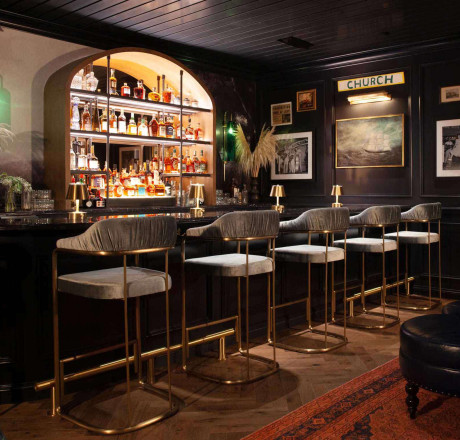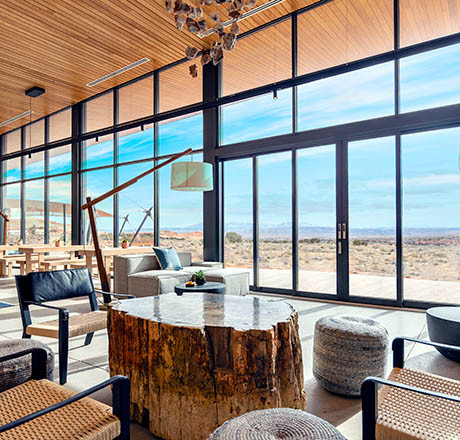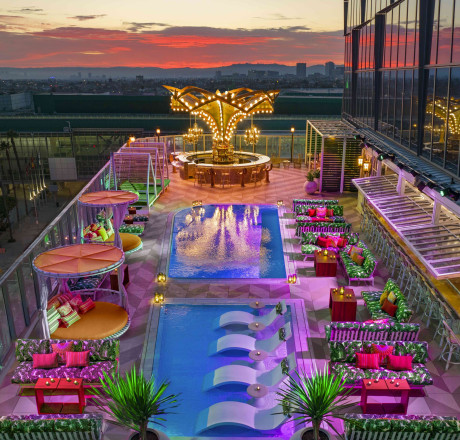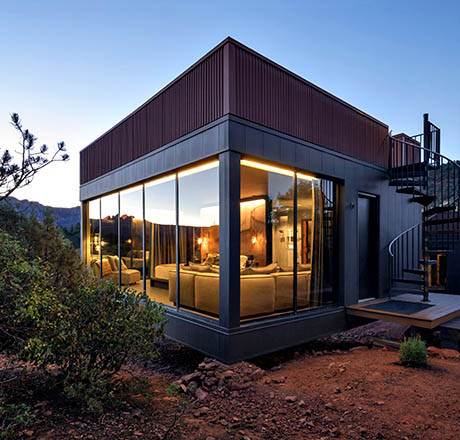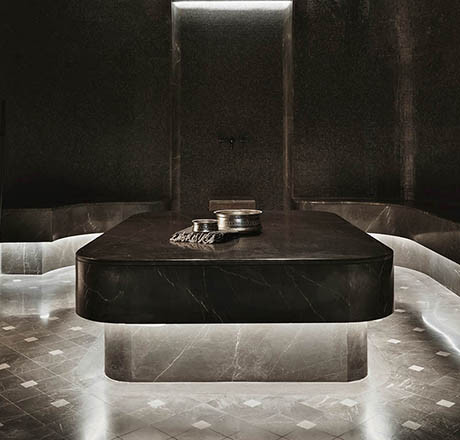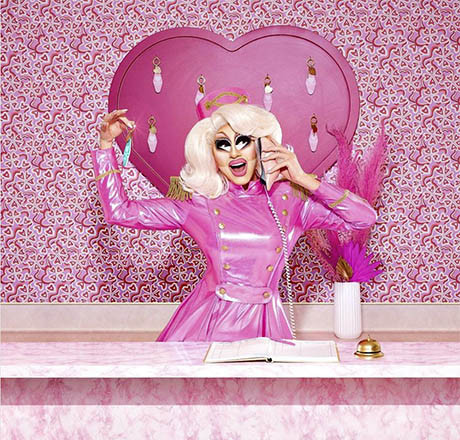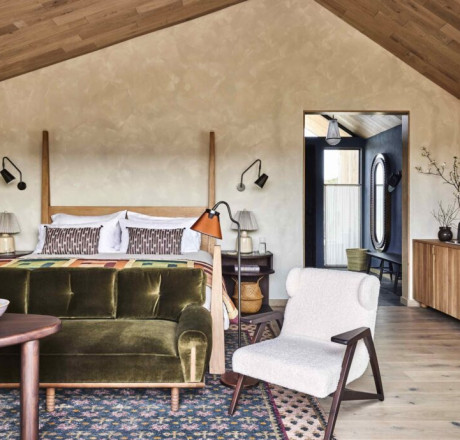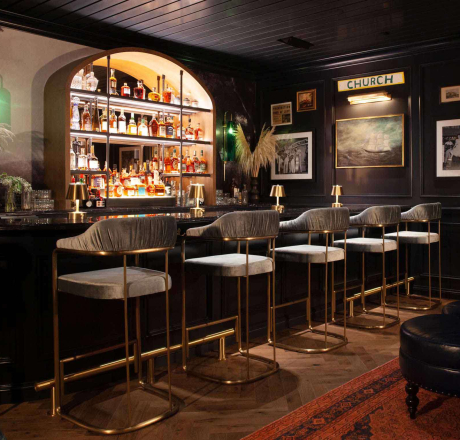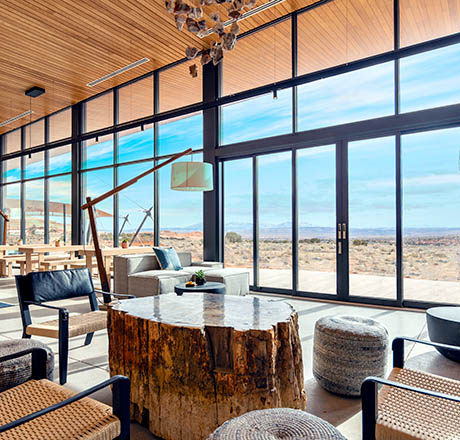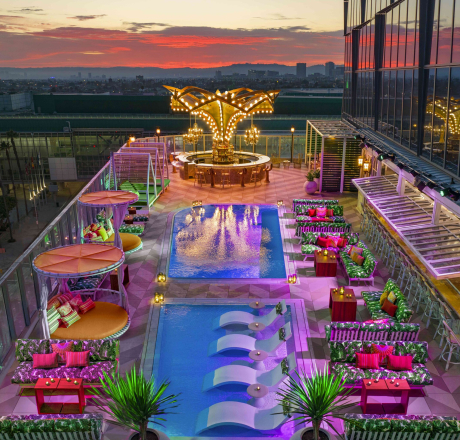United States of America
United States of America
Beats Detroit
A first-time visitor to Detroit, Michigan – it’s pronounced DEE-troit by locals – might expect to find a city broken following decades of socio-economic strife and a 2013 declaration of bankruptcy. But what the fear-mongering headlines so often fail to capture is the city’s radical beauty and the incredible cultural vibrancy that thrums just below the surface.
Since the 1960s, the Motor City has been a musical powerhouse, having not only birthed Motown, but also a slew of world-class artists, from Diana Ross to Eminem, across all genres. Few, however, realise it’s also the birthplace of techno music. Three teenagers – Juan Atkins, Derrick May and Kevin Saunderson – began producing an electrifying new sound in the early 1980s, and continue to sell out festivals and club shows around the world today.
Even as the popularity of electronic dance music has spread, it is impossible to understand techno without getting to grips with the history of the city itself. “To really understand the depth of dance music you need to understand a lot of un-righted wrongs in Black and Latino communities,” says DJ Peter Croce of local record label Rocksteady Disco. “Detroit is exhibit A for a place that decided to leave a bunch of people for dead, but those people refused to die and [instead] they made techno.”
There is indeed plenty of un-righted wrong in Detroit, which shows during any drive (because at 370 square kilometres, the city is hardly walkable) beyond the ‘rejuvenated’ Downtown area, to where thousands of crumbling houses, abandoned shopfronts and empty blocks are returning to prairie. But while Detroit might not boast the glistening club districts of New York or Berlin, there is a dynamic nightlife culture to rival any metropolis… if you know where to look.
Given Detroit's hard-scrabble, lawless reputation, it is fitting that the best, most exciting music is played in anonymous-looking buildings scattered throughout the urban sprawl. A prime example is Tires, a converted warehouse on the east side whose plain exterior is at odds with the weekly parties soundtracked by an impressive roster of world-class DJs happening within. Recently, hometown heroes Juan Atkins, Jay Daniel and John Collins have spun sets accompanied by sophisticated light shows and live performance art. If that doesn’t sound cool enough, the dance floor doubles as a skate ramp.
Marble Bar is another hidden gem: a windowless brick building on an otherwise abandoned block, with a surprisingly luxe interior – all polished wood, shining brass and, true to the name, swirling marble. In a classic illustration of how the dance music scene in Detroit is not restricted by age or even by genre, DJ Stacey ‘Hotwaxx’ Hale, who has been spinning records for more than 30 years, recently played at her own sixtieth birthday party here, accompanied by live classical musicians Nyumba Muziki (the name means house music in Swahili) and internationally renowned DJ Minx. That show, like almost every other event in the city, was attended by an astonishingly diverse cross-section of Detroiters, with twenty-something weekend warriors tearing up the dance floor alongside grandmotherly women in sensible shoes.
For dance music to suit all tastes, there is Temple Bar, a small, no-frills venue in the Midtown area, and likely the only club where you will be greeted at the door by a dog and a cat (they belong to owner and beloved local personality, George Boukas). It is also, by popular consensus, the favourite of both punters and DJs. “It has become a symbol for where Detroiters hang,” says Jon Dones of resident duo Haute to Death, which specialises in a mix of house, disco and all-eras pop. “It's not the new, shiny, suburban tourist trap or craft cocktail soiree. It’s where a whole mix of people from the city’s various cultures collide. It’s unpretentious but with a healthy dose of sass.”
Andrew Schireson, aka Dretraxx, hosts the monthly party Body Worx at Temple Bar. “It’s home base,” he says. “I know so many people there. George is always there slinging drinks and mingling. His father used to own the bar. It’s just a piece of history. You can’t listen to techno in Detroit without being aware of being in Detroit.”
That sense of place is a unique aspect of the city that local musicians do their best to honour. Super fans and novices up for a challenge should seek out Exhibit 3000. Run by legendary DJ collective Underground Resistance, this ‘secret museum’ explores the history of techno. Then there’s Assemble Sound, a converted Lutheran church that serves as a collaboratively run recording studio and venue, and Paramita Sound, a new-era vinyl store and label dealing exclusively with Detroit and Michigan-based artists.
While Detroit still faces clear challenges, culturally it is a city on the rise – and there are far too many excellent venues (TV Lounge and Populux for big-name out-of-town acts, Motor City Wine for low-key jazz and soul, The Works and Doug's Body Shop for hard-hitting, grungy late-nights, UFO Factory for eclectic programming and decor), local DJs (Erika, Monty Luke, Ryan Spencer, Joey TwoLanes and Mother Cyborg, to name-check just a few) and broad-genre up-and-coming ‘it’ bands (Shigeto, Gosh Pith, Flint Eastwood) to experience in a weekend, a month or even a year. “The music scene is exploding right now,” says Schireson. “It seems like for every old venue closing down, there are two opening up. I feel very positive about the future. I know it’s in good hands.”
Words Sophia Softky
Tags: detroit, michigan, music, nightlife, techno, united states of america, usa
 (
(






